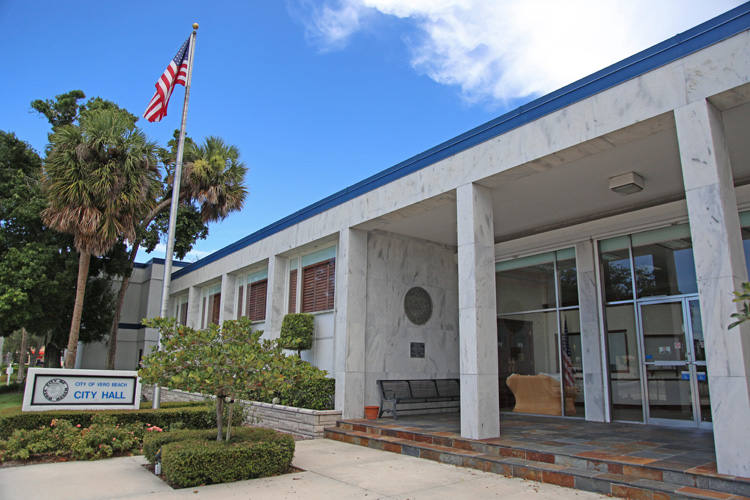
The Vero City Council will decide next week whether to approve an initial rate structure to fund stormwater management projects by levying a new tax on Vero Beach property owners.
If council members endorse the proposal – the public is invited to provide input at Tuesday’s meeting – the affected property owners will be notified by mail later this month, when they’ll learn how much they will be required to pay annually to fund the city’s new stormwater utility.
The City Council is scheduled to vote July 19 on whether to adopt the stormwater assessments, which would take effect in October with an expectation of generating more than $1 million in revenue. Another public hearing will precede that vote.
According to the proposed rate structure, owners of the city’s nearly 5,000 single-family residential properties would pay between $30 and $239 per year, depending on the size of their homes.
Four categories were established, based on square footage – small (100 to 1,300), medium (1,301 to 3,400), large (3,401 to 6,500) and very large (more than 6,500) – and the tax increases with the size of the home’s footprint.
The owner of a medium-size home would pay about $75 annually, or just over $6 per month.
Commercial property owners could pay nearly $50,000 per year, with the exact amount determined by the size of the parcel and how much of it is paved. Government-owned land also would be assessed.
If the assessments are approved, the city government would be required to pay nearly $155,000 in stormwater taxes for its own properties.
Consultants hired by the city based the assessments on the amount of pavement or other impervious surfaces on a property. For the owners of single-family homes, the assessments were based on the average amount of pavement on more than 400 residential properties.
Different calculations were used for the city’s nearly 3,400 condominium homes and 2,000-plus general parcels, which include commercial and government-owned properties.
For example: The School Board would be assessed about $36,000 annually, while the county government would be taxed about $30,000.
The new utility was created last year with the purpose of managing stormwater to reduce runoffs into the environmentally troubled Indian River Lagoon. However, the City Council postponed implementing the tax because the community was still recovering from the economic damage done by the COVID-19 pandemic.
The city opted instead to use $500,000 in American Rescue Act funds to cover the costs of drainage projects.
Mayor Robbie Brackett, who has steadfastly opposed the stormwater assessment, has questioned the wisdom of imposing a new tax at a time when raging inflation has driven up prices to a point where some consumers are struggling to keep pace.
He also has argued that city property owners essentially will be paying for stormwater management twice – because a portion of their city property taxes, which go to the general fund, will be used to pay the city government’s share of the stormwater assessment.
“I have some problems with the plan in general,” Brackett said at the City Council’s special call meeting on April 26.
The other four council members seemed to embrace the plan, however, especially after City Finance Director Cindy Lawson reminded them that this assessment will provide the only dedicated funding source for stormwater-related capital projects.
Otherwise, she explained, stormwater management projects would need to compete with the city’s other capital projects for funding.
“Until you levy an assessment,” Lawson said, “it’s a utility without any money.”
The city currently funds its stormwater management operating costs – approximately $875,000 annually – through its general fund and will continue to do so.
The new assessment, which has been endorsed by the Indian River Neighborhood Association, would be used for only stormwater-related capital projects, particularly those focused on restoring the health of the lagoon.
Proponents of the stormwater assessment say having a dedicated revenue source will enhance the city’s chances of being awarded federal, state and even private grants, many of which require the city to provide matching funds.



